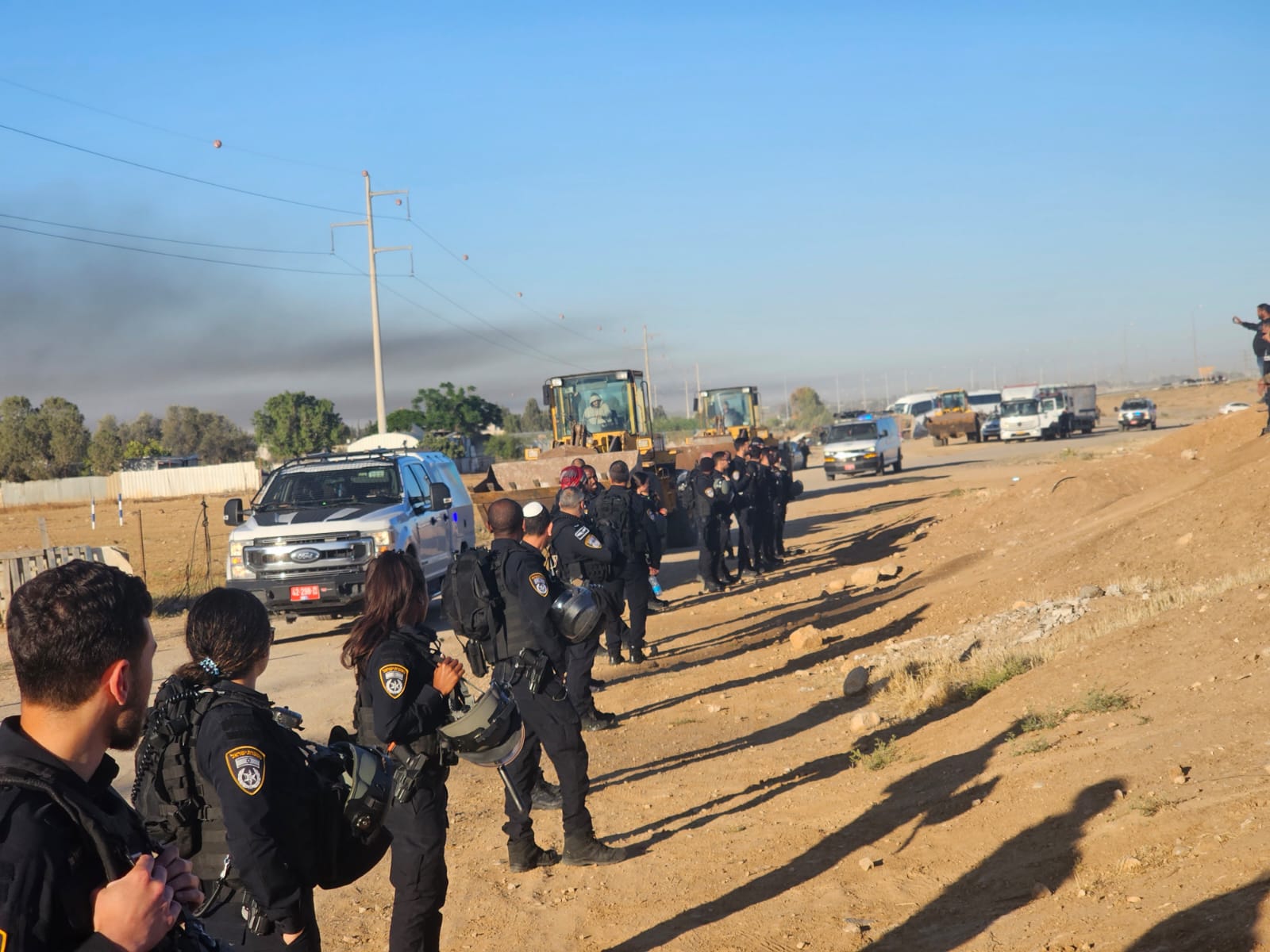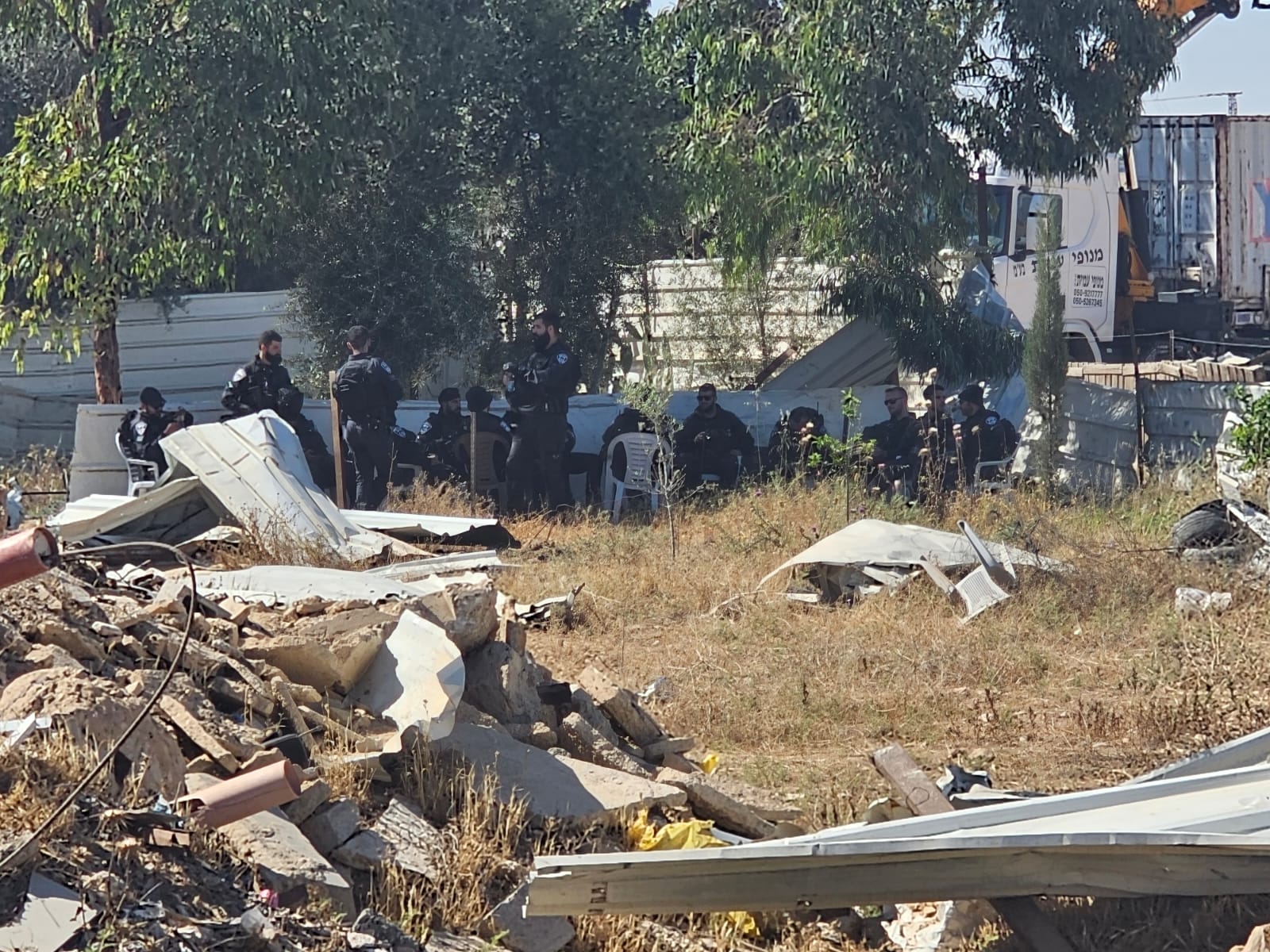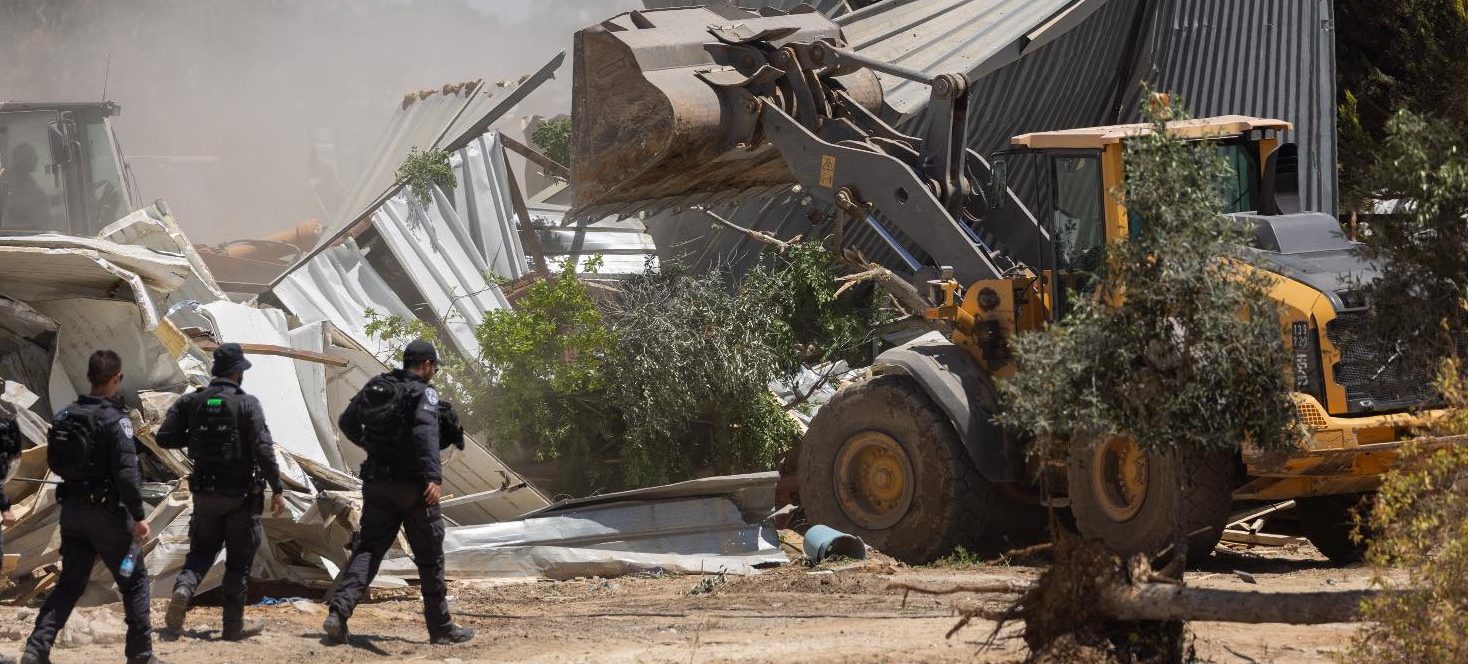The Israeli authorities’ demolition on 8 May 2024 of 47 homes in Wadi al-Khalil, an unrecognized Palestinian/Bedouin village in the Negev/Naqab, without proper consultation or compensation underscores the urgency to dismantle Israel’s apartheid system, said Amnesty International today.
The demolition orders against the Abu Assa neighbourhood in Wadi al-Khalil were issued by Israeli planning authorities in 2019 to make way for the extension of the route of Highway 6 southwards. The demolitions, the highest in a single day since the demolitions of Al-Araqib in 2010, amount to the forced eviction of over 300 residents of Wadi al-Khalil, one of nine unrecognized villages at risk of forced eviction under the guise of urban development.
“The scenes of hyper-militarized police units, including the notorious Yoav and border police units, storming Wadi al-Khalil to bulldoze homes and confiscate residents’ belongings are yet another chilling demonstration of the cruelty and ongoing injustices and human rights violations meted by Israeli authorities upon Palestinian citizens of Israel, especially those living in the Negev/Naqab,” said Heba Morayef, Amnesty International’s Regional Director for the Middle East and North Africa.
“Instead of meaningfully consulting with the local communities in an inclusive decision-making process on planning, infrastructure development and access to land, Israeli authorities, particularly the Bedouin Authority for Development and Settlement, continue to use urban development as a tool to displace Bedouins, disenfranchise them and force them into smaller and smaller pockets of land, in a clear illustration of Israel’s apartheid system. They must immediately stop all forced evictions and ensure those affected have access to effective remedy and those made homeless are granted adequate housing.”
Among the units that participated in the demolition is the police unit Yoav, a unit established in 2011 with the declared aim of “enforcing the law” and halting unauthorized construction in Bedouin localities in the Negev/Naqab.
Jabr Abu Assa, a resident of Wadi al-Khalil whose home was demolished earlier this morning, told Amnesty International:
“We cannot stop this plan; Highway number 6 would pass over our bodies regardless of how hard we resisted, so we asked the authorities for a fair and just alternative, to relocate us to a place where we can live in peace and dignity, to Mtalla neighbourhood in Tall al-Sabe’. However, the only option we were given is to move to a neighbourhood in the nearby village of Um al-Batin, where local residents already said they have no room for us and that we are not welcome; this means pitting us up against them. This means forcing us and them to have to fight over the scarce resources that are barely enough for them.”
Abu Assa added that neither he nor any of the residents whose homes and other structures were demolished have received any form of compensation.
“We don’t know where to go next”
On 31 December, the Israeli Supreme Court rejected the appeal of Wadi Al-Khalil’s residents against their forced relocation to Umm al-Batin, allowing the Bedouin Authority for the Development and Settlement of the Negev, a government body that has long served to entrench the domination and oppression of the Bedouin community, to decide where it can relocate the residents.

Hussein al-Rabaya’a, a community activist from the Negev/Naqab, told Amnesty International: “Here you have no choice: they deny you recognition then they decide to displace you, they decide where you can go, and if you protest and ask for a fair alternative, they say it’s not up to you to decide your own fate.”
Another resident of the neighbourhood whose home was destroyed, told the organization: “We don’t know where to go next; we cannot move to Umm al-Batin because we are unwanted there; we’ll do what the residents of al-Araqib did: we’ll set up a tent on the ruins of our bulldozed homes, we have no other choice.
The demolitions in Wadi al-Khalil come less than a year after the Israeli District Court had approved the forced eviction of the unrecognized village of Ras Jrabah, to make way for the expansion of nearby Jewish town of Dimona. The residents of Ras Jrabah remain embroiled in a legal battle against their village’s demolition.
“Israeli authorities must put an end to the systematic discrimination and oppression faced by these communities, including by putting an end to forced evictions and the policy of home demolition. Instead, they should grant villages recognition and repeal all laws, policies and practices designed to dispossess the community – including through planning processes,” said Heba Morayef.

Background
Over the years, Israeli authorities have employed numerous pretexts to push for the displacement and segregation of the Bedouin community in the Negev/Naqab; from expanding highways to building industrial zones, establishing forests for the Jewish National Fund and the designation of military zones.
Amnesty International’s 2022 report on Israel’s apartheid system sets out how discriminatory laws on planning and zoning designed to maximize land and resources for Jewish Israelis at the expense of Palestinians in both Israel and the Occupied Palestinian Territories.


